Driving force of office leasing market
According to a recent report by Savills, many sources of information show that the information technology industry is expected to continue to grow strongly in the period of 2024 - 2029. The estimated growth rate is 458.6 billion USD, equivalent to a rate of 32.28%. In recent years, the world has witnessed a technology explosion with a series of new trends such as cloud computing, virtual reality, 5G technology, big data and especially artificial intelligence (AI).
AI is considered the biggest technological revolution since the Internet. Consulting firm Oxford Economics predicts that by 2031, AI is likely to replace 12% of current jobs, mainly in the administrative office group. In addition, many businesses in the legal field are proactively applying AI to support the reading and summarizing of documents quickly and effectively. Although the accuracy of AI is not yet fully trusted by businesses, this technology is still being used to optimize time-consuming tasks that do not require complex skills.
As jobs are increasingly replaced by modern technology, many companies change their business size and human resources structure. This can create a need to convert offices, prioritize flexible design spaces, or choose serviced offices.
On the other hand, AI will create new job opportunities in the digital sector and promote the expansion of technology companies or technical departments in businesses. Ms. Hoang Nguyet Minh, Senior Director, Commercial Leasing Department, Savills Hanoi, assessed: "On a broader scale, we are witnessing a wave of digital department expansion, focusing on legal, data and cybersecurity in many companies to ensure confidentiality".

Hoang Nguyet Minh, Senior Director, Commercial Leasing, Savills Hanoi
Europe, one of the leading advanced technology markets, has seen a wave of office expansion to meet business growth. For example, Shoper Group opened a 600m2 AI development center in Poland; AMD doubled its leased space at Cambridge Science Park (UK) to 4,200m2 and Amadeus added 500m² to its office in Italy.
This trend is also taking place in the Chinese market, as indicated in Savills' China Real Estate Market Report Q2/2024, when the pharmaceutical, information technology and financial industries accounted for 70-80% of office leasing transactions.
In Vietnam, the information technology industry is also developing impressively. According to a report from the Ministry of Information and Communications , revenue from this industry reached 36.6% in the first quarter of 2024, recording a growth rate of 17.7% over the same period last year. The Center for Human Resources Demand Forecasting and Labor Market Information also noted that the information technology industry is among the 4 industries with the highest recruitment demand in 2023.
At the same time, the increasing recruitment trend in the technology industry has put this industry in the leading group of office space leasing in many countries. According to Savills experts, in early 2024, the technology industry group accounted for 71% of the leasing transaction area in the Hanoi market.
Technology integrated office trend
Savills report shows that office leasing is currently the real estate sector with the most investment in technology. The global office market is moving towards the trend of smart offices with technology applications to improve the experience of tenants and office staff.
In Asian markets, such as South Korea and Singapore, the image of robots working in office buildings is becoming more and more popular. In the Factorial Seongsu building in South Korea, robots are in charge of collecting and delivering parcels. Similarly, the JCT Summit building in Singapore has integrated technology to control energy consumption and use robots in transportation, contributing to improving operational efficiency.
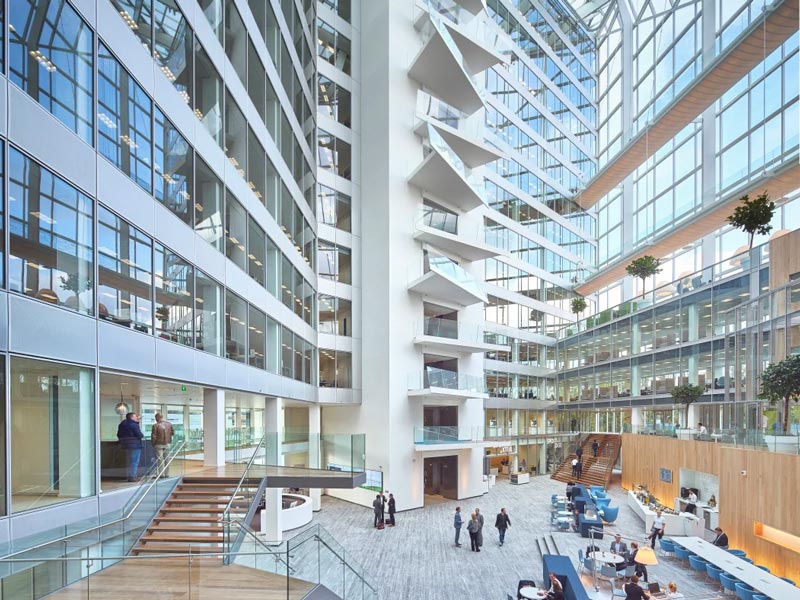
Applying technology to office projects becomes popular in the world market.
Beyond supporting regular customer service, smart offices also leverage technology to optimize operations and reduce energy consumption. This is important for businesses pursuing ESG goals for sustainable development.
In addition, AI technology can scan building information, detect abnormalities in energy use, or optimize building management systems to guide employees to their office seats to reduce energy consumption on off-peak days. This helps to more effectively manage elevator capacity and lighting/heating costs on unused floors.
According to research from Energy Savings Performance Contracting authorized by the US Congress, smart office buildings can save 30-50% of energy consumption compared to traditional buildings.
In addition, sensor light technology and facial recognition for entering and exiting buildings are becoming popular with the aim of simplifying the customer experience. In Vietnam, the trend of smart offices has begun to appear.
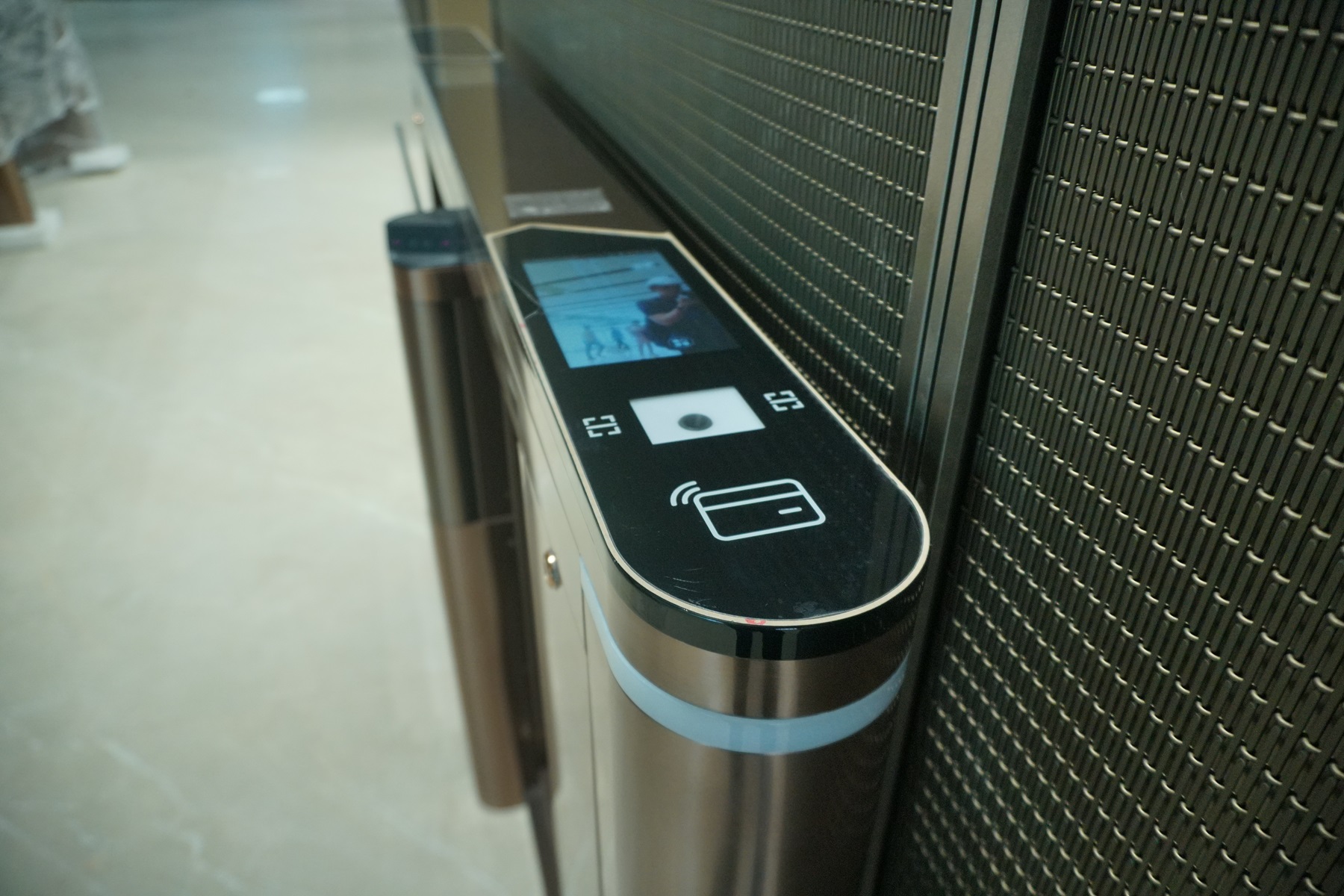
Many technology applications are brought into office buildings, becoming an advantage to increase competitiveness.
A few office buildings in Vietnam have applied AI combined with facial recognition technology to control people entering and leaving the office area. This technology also allows to evaluate the behavior of people entering and leaving, automatically sending warnings to the security room when detecting unusual signs. In addition, many projects also use the office entry and exit registration mechanism via QR code, helping to reduce pressure on the reception department as well as helping customers receive faster support.
Savills experts assess that technology-integrated offices are bringing positive impacts to tenant experience and liberating labor. This trend will develop in parallel with technology, promising to bring more conveniences in the future.
Source: https://www.congluan.vn/cong-nghe-thong-minh-dang-thay-doi-thi-truong-van-phong-toan-cau-post313699.html




























![[Infographic] Vietnam-Senegal traditional friendship](https://vphoto.vietnam.vn/thumb/1200x675/vietnam/resource/IMAGE/2025/7/23/4c96a604979345adb452af1d439d457b)

























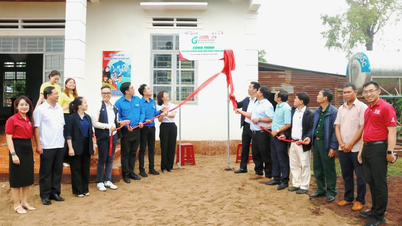

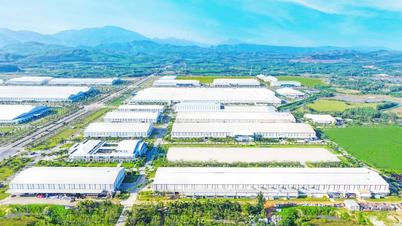





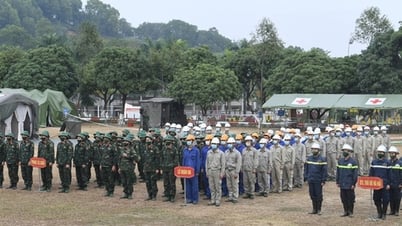










































Comment (0)